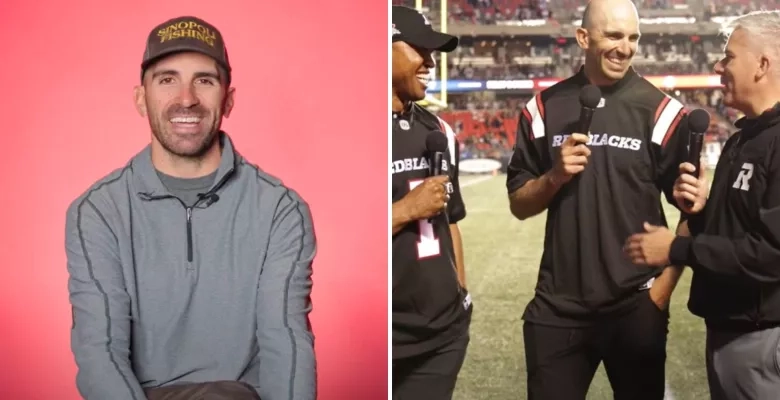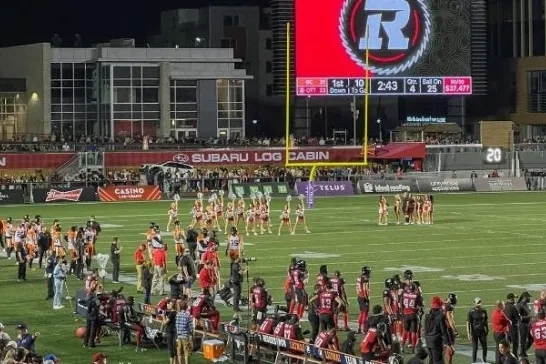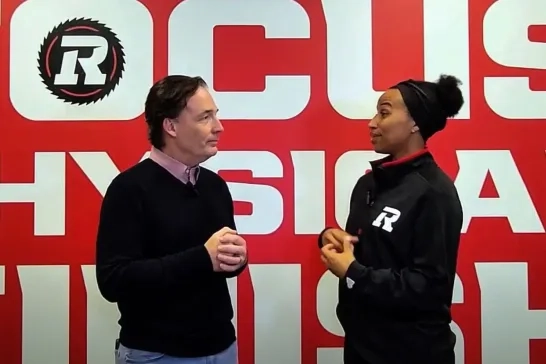
Win a fishing trip with CFL legend Brad Sinopoli
4 Minute Read
Mention the name ‘Brad Sinopoli’ and CFL fans start to talk.
After all, the retired star wide receiver is something of a legend in football circles: he set the all-time CFL and Ottawa football records for receptions in a season and he was inducted into the Ontario Sports Hall of Fame in 2016, edging out top sporting names like Andre De Grasse, Brooke Henderson and Andrew Wiggins.
He may have retired from the Ottawa RedBlacks in 2021, but we’re offering CAA Members a chance to relive past CFL glories and get out on the water with Brad at his new venture, Sinopoli Fishing.
The prize: An entire day spent fishing for the elusive musky on the Ottawa Valley’s rivers with Brad in 2023. The winner can invite two additional friends to join on this fishing adventure of a lifetime.
To get the low down on how a CFL wide receiver ended up out on the water, we recently chatted with Brad. about what life is like after retiring from pro ball.
After a career playing football, why start a fishing charter company?
When football ended, I saw the challenge and opportunity to do my own thing, be my own boss and be in charge. I had an idea to do something, but when the door opened, I had to step through.
Where did your love of fishing start?
As long as I can remember, my dad took me out fishing. I was catching bass, and walleye, but it wasn't about the fish. It started very simply; I didn't care if we caught fish. It was about being out there in nature.
My dad, Sam, never fished with me. He just put the worm on the hook for me. He never loved fishing, but now he loves being there. This year, I forced him to get his first muskie (a large freshwater fish part of the pike family), which was awesome. Every year, for fun, my brother and sister join me for an annual muskie trip, too.
What's the biggest thing you're trying to achieve out on the water with your clients?
I want people to have a good time. Sometimes, we're fishing for something hard to catch, and that's a big part of the experience. But what's the point of being out there if we're not having fun? So, I hope people enjoy the process. It never goes how it's supposed to; you must roll the punches.
Plus, I'm trying to teach people about the waterways and fish movements. For example, if I see walleye deep in the water, I can explain why they're there and why the muskies won't be far behind. It's the movement of systems in the ecosystem; they're all related.
What do people need to learn about muskies?
When it comes to fishing for muskies, they're tough to catch. Muskies are very smart; they're hard to trick. As a result, they're known as the fish of 10000 casts. Eventually, they'll go for your bait, but it takes time.
If they're active, it's a different tactic than when they're sitting and resting. They don't like being hooked when they're actively feeding. If you try to catch them while they are eating, they'll fight and can do a great job of unhooking themselves.
To catch them, we use a big net, either casting or trolling. We keep them low in the water and bring them in easily.
Is fishing a big change from being a wide receiver, or are there similarities?
There are so many parallels. Football was every day you show up and bring what you have; you must prove your skill to your teammates and yourself.
With fishing, I have a new group of people on the boat every day, and there are different challenges with the people, the weather, and the fish. It doesn't matter about the previous day's success; you start from scratch daily. Usually, people don't care about what was caught the day before; their only desire is to catch a fish today.
With football, you watch a lot of films. You're thinking as a receiver; you have certain tells and moves or routes you run, and people are watching you and adjusting to your actions. It's easy to be complacent about success, but people always try to counter that. So, you think, if I do this, how will they react? What will I do to change?
That's what I do out here. Every day, I come out, and we are fishing in similar spots. All these fish have seen lures, so you must think outside the box and adjust your actions. The fish are also changing and learning over time.
What do you offer clients, aside from the opportunity to fish and talk football?
I like to show them something different. I'm experienced in netting and other techniques in certain water conditions. It's about looking at what you do and getting better daily.
What would be your best day on the water?
My favourite day can depend on the possible conditions, which vary. Sometimes, you know it’ll be a very tough day of fishing, and you’re catching in the rain. The weather can be the biggest challenge, but you pull through.
The best moment is the first catch. I like seeing the fish in the net and seeing people’s joy, whether it’s a father and son duo or someone who’s been trying to catch a fish for years.
Sometimes it’s a guy whose father took him out when he was a kid, his father passed, and now he wants to have that trip with his child. It’s a moment and a memory he wants to try and recreate. You can feel it. You spend eight or 10 hours on a boat with people, and you can feel the emotion attached to it.
There is a joy that people experience, it’s a rush, and you never know when it will happen. It could occur in the first five minutes or the last five minutes. It usually shocks you, and you don’t expect it.
Everyone has different expectations; some people don’t care about size, while others want the big one. With me, everything is catch and release. We let them go so they can grow and are ready for the following catch.
The interview has been condensed and edited for clarity.




